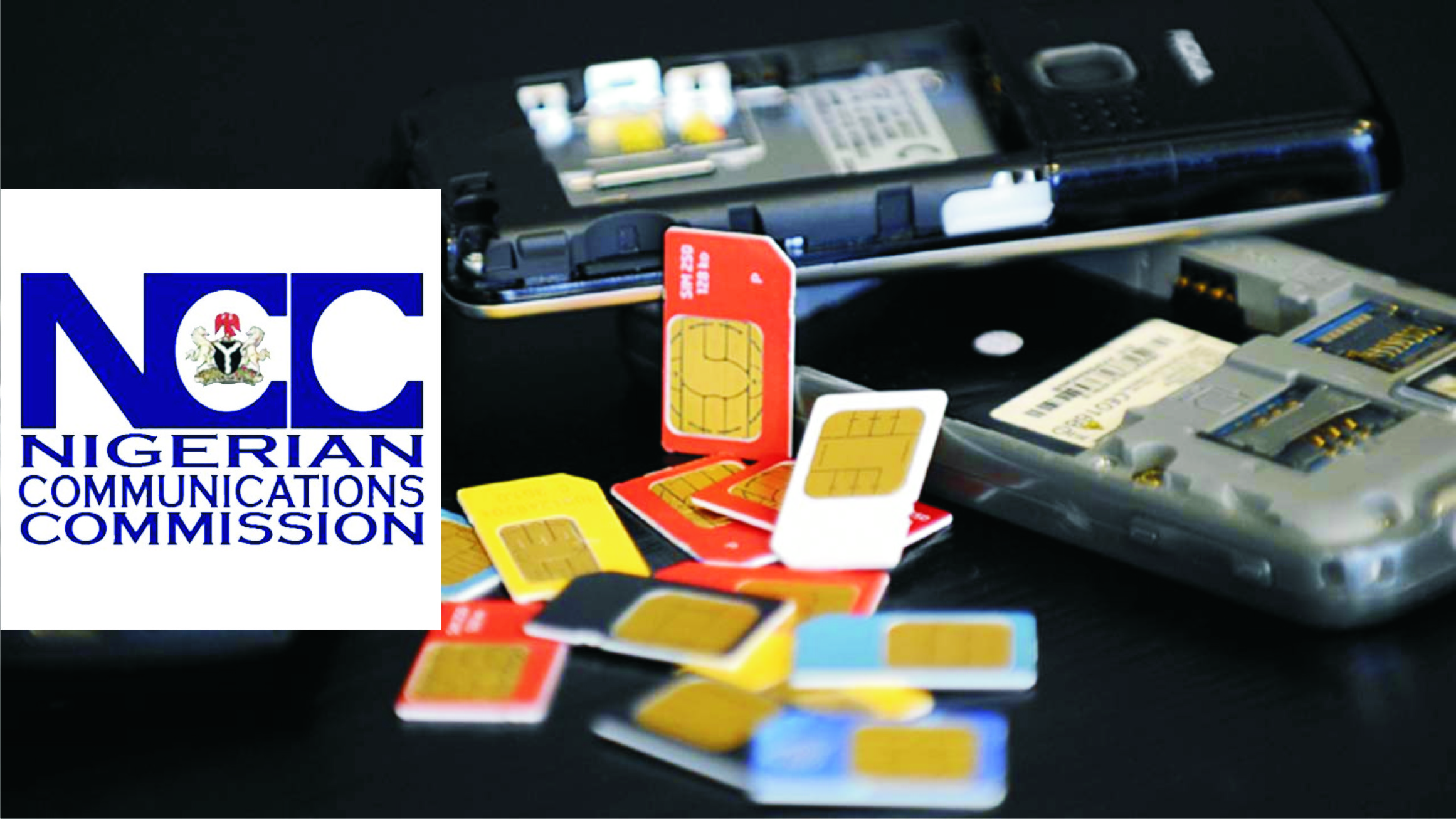Business
FG Releases New Telecoms SIM Replacement Policy

The Federal Government on Saturday released a new policy for the replacement of Subscriber Identification Modules in the telecommunications sector.
It said the policy was in line with its drive to ensure that all subscriber registrations were linked with National Identification Numbers.
It said all stakeholders in the industry were working together to ensure that the process was carried out as seamlessly as possible.
The new SIM Replacement Policy, which was approved by the Minister of Communications and Digital Economy, Isa Pantami, is for subscribers whose SIMs have been lost, stolen, misplaced or damaged.
The Federal Government disclosed this in a statement jointly signed by the Director, Public Affairs, National Communications Commission, Mr. Ikechukwu Adinde, and Head, Corporate Communications, National Identity Management Commission, Mr. Kayode Adegoke.
On conditions for replacement of SIMs, the government stated that “the subscriber shall present a NIN; that an effective verification of the NIN is carried out by NIMC.
“And that the relevant guidelines and regulations of NCC concerning SIM replacement are fully adhered to.”
The Federal Government had declared on December 15, 2020 that after December 30, 2020, all SIMs that were not registered with valid NINs on the network of telecommunications companies shall be blocked.
But it later extended the December 30, 2020 deadline following widespread opposition against the earlier announcement.
The government gave three weeks extension for subscribers with NIN from December 30, 2020 to January 19, 2021
It also gave six weeks extension for subscribers without NIN from December 30, 2020 to February 9, 2021.
In the statement issued on Saturday, the government appreciated Nigerians for the understanding and commitment demonstrated towards ensuring the overall success of the exercise.
It also said the ministerial task force under the chairmanship of the communications minister set up a technical committee made up of representatives of NCC, NIMC, Association of Licensed Telecommunications Operators of Nigeria and mobile network operators.
“The technical committee is charged with the operationalisation of the process to ensure an expedited linkage of all SIM registration records with NIN,” the statement stated.
It added that it was based on recommendations of the committee that the approved the SIM Replacement Policy.
It said the policy was aimed at enabling telecommunications service users who need to replace their damaged, stolen or misplaced SIMs to re-establish access to telecom services.
Business
Agency Gives Insight Into Its Inspection, Monitoring Operations

Business
BVN Enrolments Rise 6% To 67.8m In 2025 — NIBSS

The Nigeria Inter-Bank Settlement System (NIBSS) has said that Bank Verification Number (BVN) enrolments rose by 6.8 per cent year-on-year to 67.8 million as at December 2025, up from 63.5 million recorded in the corresponding period of 2024.
In a statement published on its website, NIBSS attributed the growth to stronger policy enforcement by the Central Bank of Nigeria (CBN) and the expansion of diaspora enrolment initiatives.
NIBSS noted that the expansion reinforces the BVN system’s central role in Nigeria’s financial inclusion drive and digital identity framework.
Another major driver, the statement said, was the rollout of the Non-Resident Bank Verification Number (NRBVN) initiative, which allows Nigerians in the diaspora to obtain a BVN remotely without physical presence in the country.
A five-year analysis by NIBSS showed consistent growth in BVN enrolments, rising from 51.9 million in 2021 to 56.0 million in 2022, 60.1 million in 2023, 63.5 million in 2024 and 67.8 million by December 2025. The steady increase reflects stronger compliance with biometric identity requirements and improved coverage of the national banking identity system.
However, NIBSS noted that BVN enrolments still lag the total number of active bank accounts, which exceeded 320 million as of March 2025.
The gap, it explained, is largely due to multiple bank accounts linked to single BVNs, as well as customers yet to complete enrolment, despite the progress recorded.
Business
AFAN Unveils Plans To Boost Food Production In 2026
-

 News2 days ago
News2 days ago2026 Budget: FG Allocates N12.78bn For Census, NPC Vehicles
-

 Featured5 days ago
Featured5 days agoRSG Kicks Off Armed Forces Remembrance Day ‘Morrow …Restates Commitment Towards Veterans’ Welfare
-

 Featured5 days ago
Featured5 days agoTinubu Hails NGX N100trn Milestones, Urges Nigerians To Invest Locally
-
News5 days ago
Benin: FG Secures Release Of Nigerian Pastor
-
News5 days ago
NAF, US Officials Meet To Fast-Track Delivery Of Attack Helicopters
-
News5 days ago
Arrest Arise TV Crew Attackers Or Face Boycott, Journalists Tell Rivers Police
-

 News5 days ago
News5 days agoFast-Track Approval Of NDDC N1.75trn Budget, Group Begs N’Assembly
-

 Sports2 days ago
Sports2 days agoAFCON: Osimhen, Lookman Threaten Algeria’s Record

